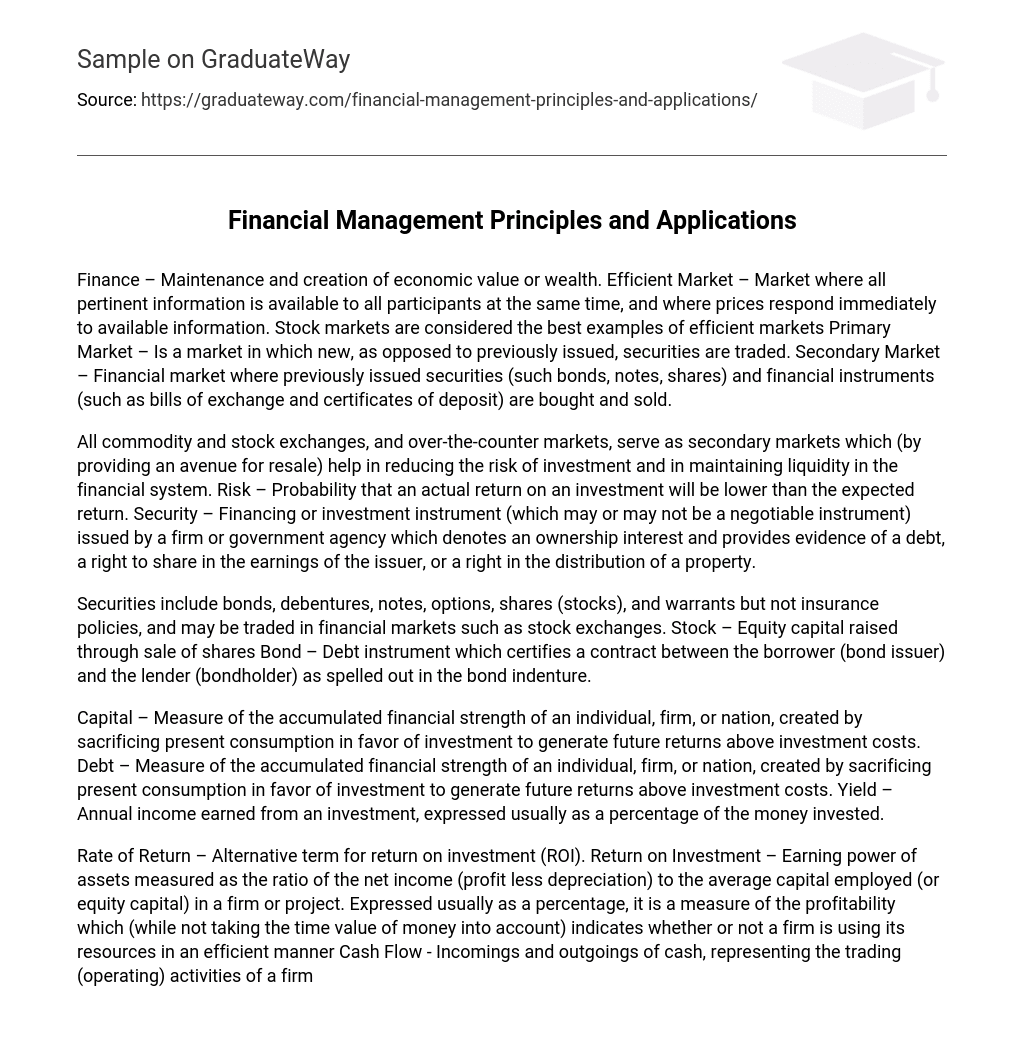Finance – Maintenance and creation of economic value or wealth. Efficient Market – Market where all pertinent information is available to all participants at the same time, and where prices respond immediately to available information. Stock markets are considered the best examples of efficient markets Primary Market – Is a market in which new, as opposed to previously issued, securities are traded. Secondary Market – Financial market where previously issued securities (such bonds, notes, shares) and financial instruments (such as bills of exchange and certificates of deposit) are bought and sold.
All commodity and stock exchanges, and over-the-counter markets, serve as secondary markets which (by providing an avenue for resale) help in reducing the risk of investment and in maintaining liquidity in the financial system. Risk – Probability that an actual return on an investment will be lower than the expected return. Security – Financing or investment instrument (which may or may not be a negotiable instrument) issued by a firm or government agency which denotes an ownership interest and provides evidence of a debt, a right to share in the earnings of the issuer, or a right in the distribution of a property.
Securities include bonds, debentures, notes, options, shares (stocks), and warrants but not insurance policies, and may be traded in financial markets such as stock exchanges. Stock – Equity capital raised through sale of shares Bond – Debt instrument which certifies a contract between the borrower (bond issuer) and the lender (bondholder) as spelled out in the bond indenture.
Capital – Measure of the accumulated financial strength of an individual, firm, or nation, created by sacrificing present consumption in favor of investment to generate future returns above investment costs. Debt – Measure of the accumulated financial strength of an individual, firm, or nation, created by sacrificing present consumption in favor of investment to generate future returns above investment costs. Yield – Annual income earned from an investment, expressed usually as a percentage of the money invested.
Rate of Return – Alternative term for return on investment (ROI). Return on Investment – Earning power of assets measured as the ratio of the net income (profit less depreciation) to the average capital employed (or equity capital) in a firm or project. Expressed usually as a percentage, it is a measure of the profitability which (while not taking the time value of money into account) indicates whether or not a firm is using its resources in an efficient manner Cash Flow – Incomings and outgoings of cash, representing the trading (operating) activities of a firm





